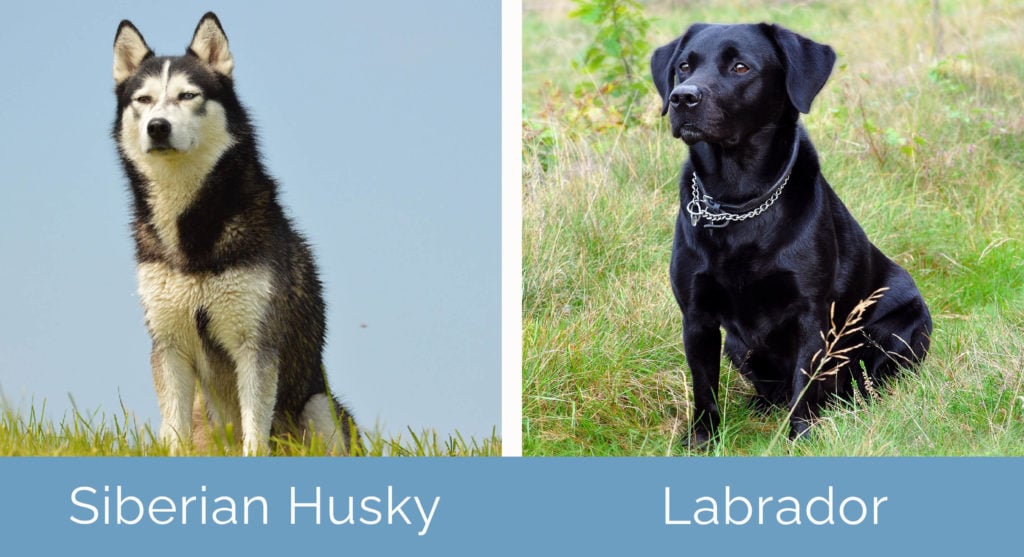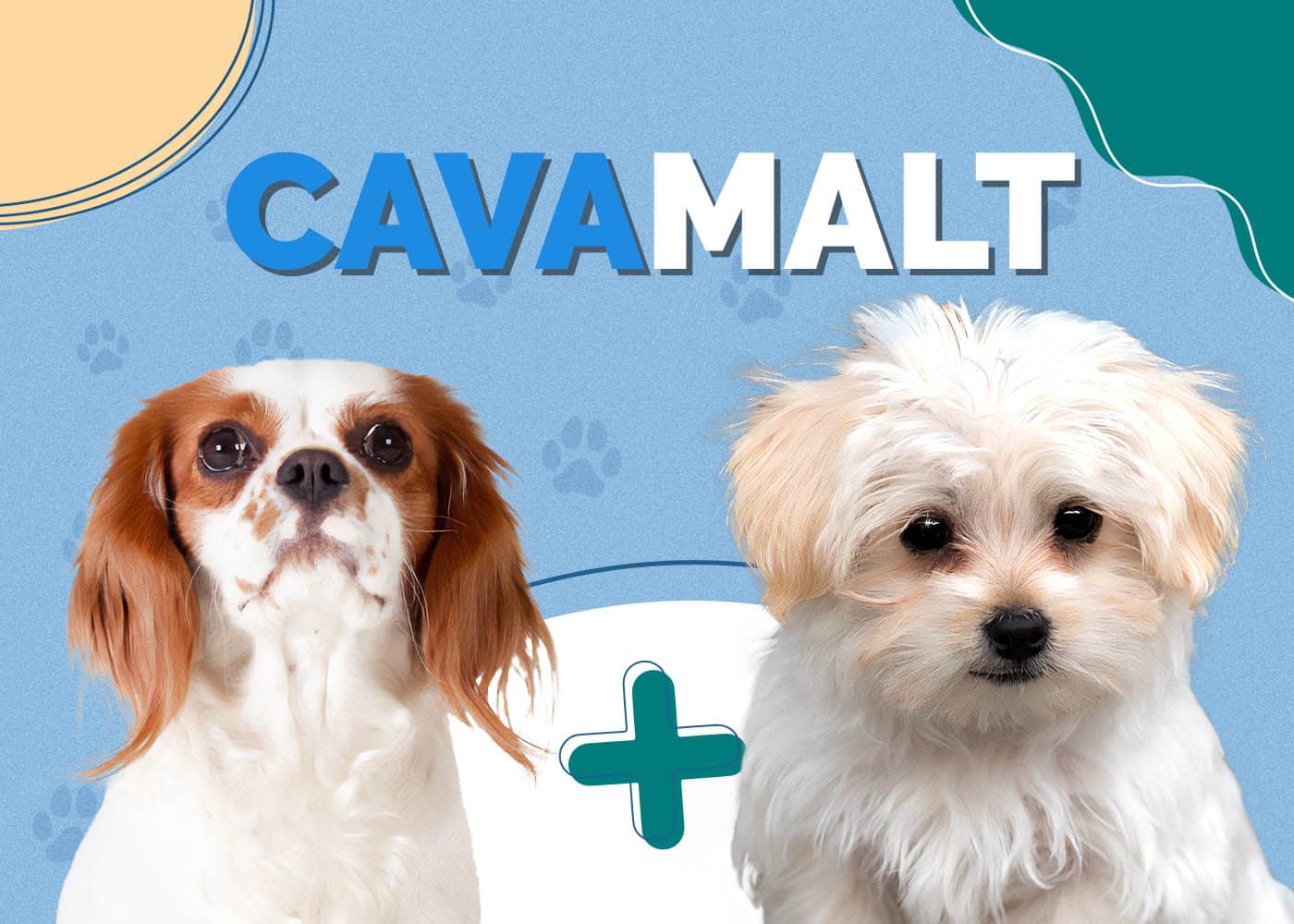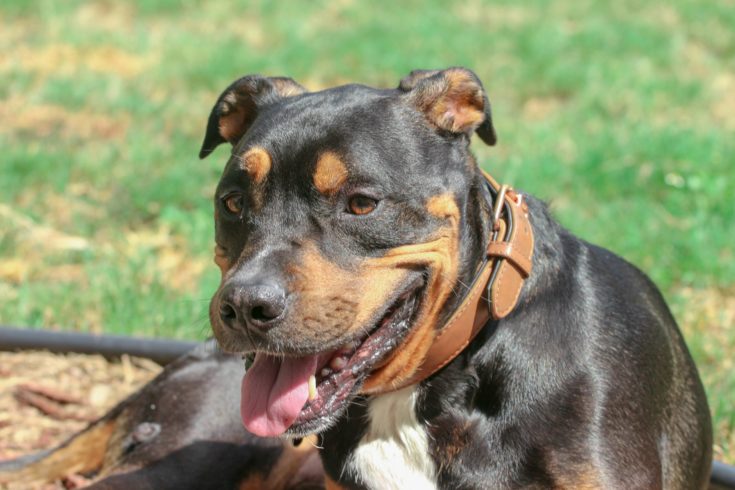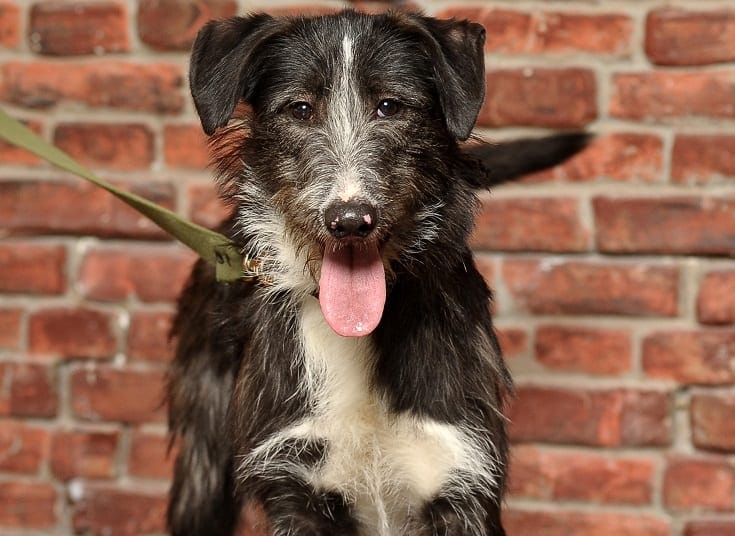Husky vs. Labrador: What Are the Differences?

Updated on
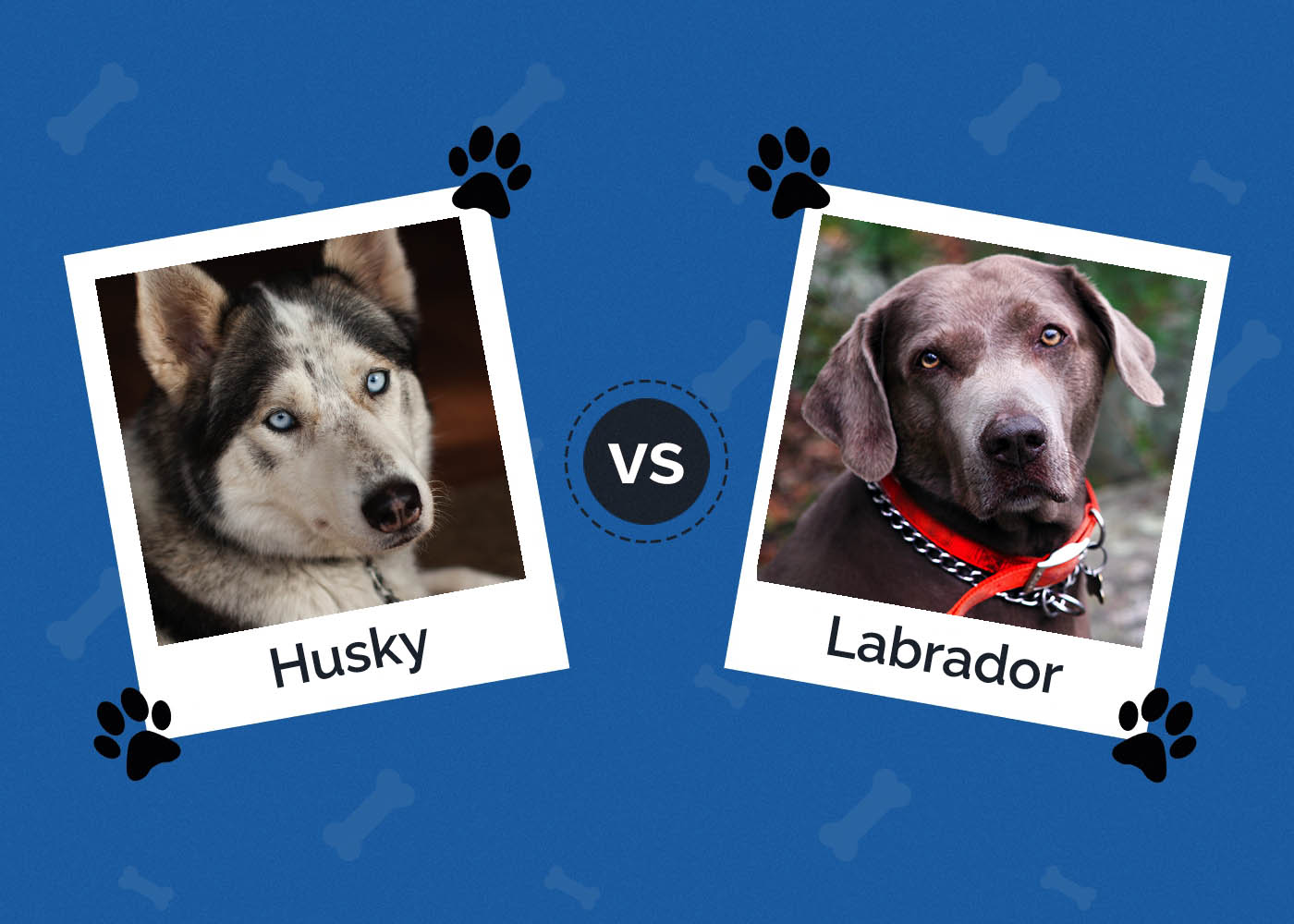
The Husky and the Labrador Retriever are two of the most popular dogs to own as pets in North America. Both of them are considered excellent matches for active families, and they are both medium to large breeds. They might seem like they have many similarities, but there are quite a few differences in both their appearance and personalities.
It can be a challenge to pick the perfect breed for your family, but specific characteristics can make a breed suit you better than another. Let’s look at the defining aspects of these dogs and how they may or may not fit your family.
 Husky vs. Labrador: Visual Differences
Husky vs. Labrador: Visual Differences
A Quick Overview
- Average Height (adult): 20-24 inches
- Average Weight (adult): 35-60 pounds
- Lifespan: 12-15 years
- Exercise: 30-60 minutes daily
- Grooming needs: High
- Family-friendly: Yes
- Dog-friendly: Sometimes
- Trainability: Moderate
- Average Height (adult): 22-24 inches
- Average Weight (adult): 55-79 pounds
- Lifespan: 10 – 12 years
- Exercise: 30-60 minutes daily
- Grooming needs: Low
- Family-friendly: Yes
- Dog-friendly: Sometimes
- Trainability: High
Husky Overview

The Siberian Husky is a beautiful breed renowned for their time as the sled dogs of the North and their fluffy double coats of fur. They have Spitz-like faces with ears that stick straight up, and they often have bright, icy blue eyes.
Huskies can look like wolves with their pointed faces and curly-Q tails. Although they probably came from wolves and are descended more directly than many other breeds, they don’t have a wolfish personality. They are incredibly athletic and intelligent with a mind of their own.
A Husky needs personal time with their family and are known to “talk” to you when you want something. They are escape artists when not kept in a fenced yard with extra precautions, especially if they are bored.
Personality
The personality of a Husky is one of their most beguiling attributes beyond their stunning and intelligent appearance. They are goofy dogs with the capacity to make their own decisions. Funnily enough, their facial expressions seem to make their feelings quite obvious.
Huskies can be extremely stubborn and crafty if they need to figure out how to get what they want. They are often quite happy dogs and can be extremely energetic when they are puppies. It takes them a while to grow out of this, but they become much lazier and laidback as they get older.
Training
Training Huskies take a great deal of time and patience. They often do precisely what they want and have short attention spans if they aren’t interested in you. They also exhibit the characteristic called “selective deafness,” meaning that they will pretend that they simply can’t hear you if they can’t be bothered.
To train them, figure out what motivates them, which is usually food or certain toys and activities. Use these to keep their attention and the training fast-paced. They are highly intelligent, so they aren’t learning because they can’t but because they don’t want to.

Health and Care
Overall, the Husky is a generally robust and healthy breed. They need about 1.5 to 2 cups of food each day. They can monitor their intake if you want to free feed them. Otherwise, divide this into two primary meals. Give them high-quality food made for active medium to large-breed pups.
Huskies can struggle with their eyes as they get older because blue isn’t a natural color for the eyes and can sometimes be the sign of a cataract mutation. Be prepared for steadily regressing eyesight as they age and how to dog-proof your home for this.
Their coat takes a great deal of time and maintenance. The best thing you can do for yourself is to buy a high-quality vacuum with superb suction since their hair gets everywhere. Otherwise, brush them daily and try to get their coats blown in the spring and fall, which is when they start to shed their underlayer.
Suitability
Energetic and spunky with larger-than-life personalities and facial expressions, Huskies make good family pets for experienced owners with plenty of time for them. They can be stubborn while training and are a handful during walks because they love to pull.
Labrador Overview

The Labrador Retriever is one of the best companionship breeds and one of the most useful working breeds as well. They make great additions to many families but are also capable of being put to work on a farm or ranch. They are truly happy-go-lucky dogs that simply want to be near you and make you happy.
The Lab is a good-natured dog whose tail wagging often moves their whole body. They are one of America’s favorite breeds and have been for many years. A Lab is overall an easy and low-maintenance dog to care for and can adapt to a wide variety of living situations, so long as they get enough exercise.
Personality
A Labrador has an eternally optimistic behavior. If you have ever had someone who believes in you through thick and thin, no matter what you do to them, you can accurately imagine what the Lab’s attitude for their beloved owner is. They will put up with anything just to get a little time and attention from you.
Labradors start as energetic pups that spend a great deal of time spent playing around and exercising. As they age, they become much more laidback and can be very lazy dogs. They can struggle with obesity because they will do nothing but lay around if not taken out, unlike the destructive Husky when bored.
Training
A Labrador Retriever is a pup that is recommended for first-time owners based on their convenience when it comes to training. They want to make you happy and are always quite intelligent. They learn quickly and seem to get satisfaction from doing something the right way.
Labradors are also exceptionally food motivated. Although you shouldn’t give a dog too many treats, it makes figuring them out and motivating them much easier. Make training fun, and they will be more than excited to spend that time with you each day.
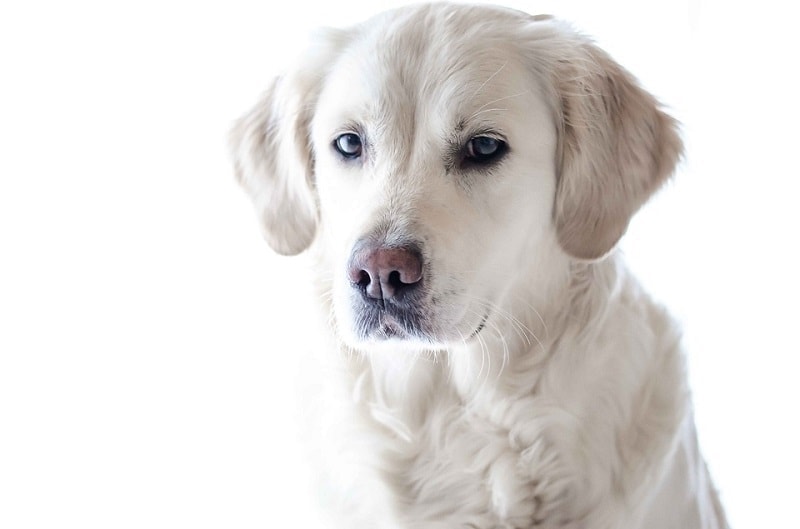
Health and Care
When they are young, Labradors are quite robust and healthy dogs. However, as they age, they tend to struggle with joint issues. That can be somewhat preemptively helped by feeding them a diet to support healthy joints, but it is still something to watch for.
Otherwise, caring for their coat and keeping them maintained is much easier than with a Husky. They should be brushed weekly to reduce their shedding and disperse their skin oils throughout their coat. Keep their nails trimmed and their ears clean to prevent ear infections.
The Labrador and the Husky both need about the same amount of exercise, about an hour each day. As the Labrador ages, they will be less prone to prompt you for it, while a Husky’s vigor for the outdoors won’t dissipate until they are old.
Suitability
For first-time owners or families who haven’t had a dog before, Labs make excellent companions. They are good for farmers, ranchers, and hunters as well. Training them and maintaining them makes them one of the most convenient medium-sized breeds to own.
Final Thoughts
While there are a few similarities between the Husky and the Labrador, there is a clear distinction for the kinds of people who should own these dogs. Labrador Retrievers are much more versatile than Huskies. They can easily adapt to a variety of family situations and activity levels.
Huskies are a good choice if you love to spend most of your free time outdoors and have plenty of free time to begin with. They don’t behave well if they get bored, and thus, they must live an active lifestyle. They will always bring character and fun into a home but can be a handful if you simply want a well-behaved dog to relax with.
Both of these breeds are agreeable with other household pets most of the time and make excellent choices for families. Evaluate how much time you and your family can give to the dog and what lifestyle you have before choosing between these two favorites.
- Related Read: Akita vs. Husky: What’s the Difference?
Featured Image Credit: (L) Regular Man, Unsplash | (R) Lon Casler Bixby, Shutterstock
 Husky vs. Labrador: Visual Differences
Husky vs. Labrador: Visual Differences